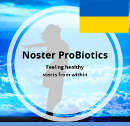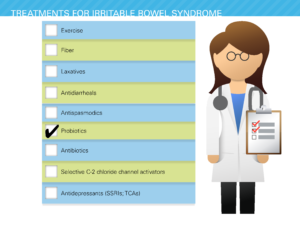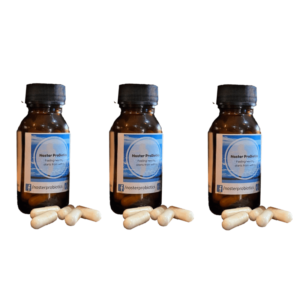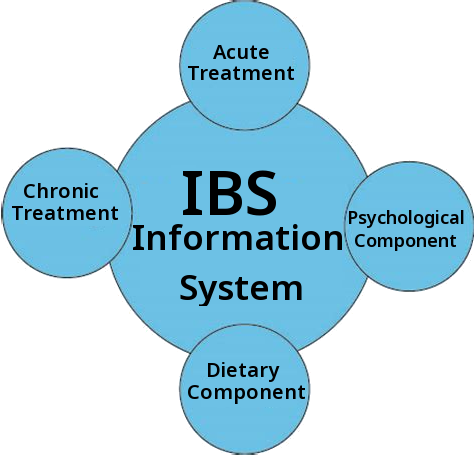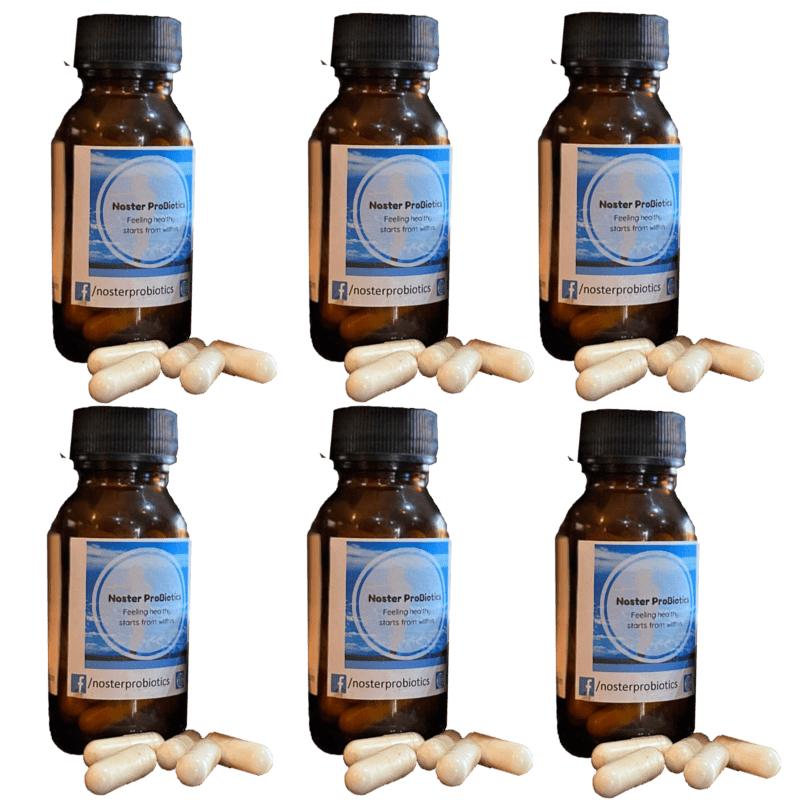If you’re dealing with Irritable Bowel Syndrome (IBS), you’re not alone. We are here to help you with choosing the Best Probiotics for IBS Relief. This common digestive disorder affects millions worldwide, causing uncomfortable symptoms like tummy pain, bloating, and changes in how often you go to the bathroom. The good news is that probiotics might help! Let’s explore how to pick the right probiotics for IBS and maybe find some relief. Understanding how probiotics and IBS are connected is essential for managing symptoms and improving gut health.
Key Factors in Choosing Probiotics for IBS
- Look for specific types like Lactobacillus and Bifidobacterium
- Check for a high CFU (colony-forming units) count, usually in the billions
- Make sure the product is good quality and stable
- Choose brands with scientific evidence backing their claims
- Pick probiotics made especially for IBS relief
- Consider your type of IBS (like IBS-D or IBS-C) when choosing
- Look for ones that help with pain and bloating
- Find probiotics that might help regulate bathroom habits
- Remember that what works can be different for each person
- Ask a doctor for personalised advice
- Be patient, it might take a few weeks to see changes
- Keep a diary of your symptoms to see if it’s working
Understanding IBS and Probiotics
IBS is a tricky condition that can mess with your gut. It’s like your digestive system throws a tantrum, causing many uncomfortable symptoms. But here’s where probiotics come in – they’re like tiny superheroes for your tummy! Stress, certain foods, and when your gut bacteria are out of balance, can trigger IBS. Probiotics work by helping to restore balance to your gut microbiome, potentially making you feel better.
Probiotics are friendly bacteria that can help balance your gut microbiome. Think of them as reinforcements for the good bacteria already living in your intestines. When you have IBS, your gut might be out of whack, and probiotics can help get things back on track. Learn more about live probiotics here. These helpful microorganisms can improve digestion, reduce inflammation, and strengthen your gut barrier, which might help with IBS symptoms. Probiotics can be beneficial, but they’re not a one-size-fits-all solution and might work differently for different people.
Key Factors in Choosing Probiotics for IBS
Remember a few essential things when looking for the right probiotic to help with your IBS symptoms. Many different types of probiotics are out there, and it can be unclear which ones are best. Understanding these key factors can help you make a good choice and maybe find a probiotic that works well for you.
First, not all probiotics are the same when it comes to IBS. Some types, like certain kinds of Lactobacillus and Bifidobacterium, have shown promise in helping with IBS symptoms. It’s like picking the right tool for a job – you want bacteria specially suited for dealing with IBS. For example, Lactobacillus plantarum 299v has been shown to help with tummy pain and bloating in some people with IBS, while Bifidobacterium infantis 35624 might help make your bathroom habits more regular.
Next, pay attention to the CFU count. This tells you how many live bacteria are in each dose. You usually want a higher CFU count for IBS, often in the billions. It’s like having a bigger team of helpers in your gut! A higher CFU count doesn’t always mean it works better, but it can increase the chances of enough good bacteria surviving the trip through your digestive system to make a difference. Some studies suggest you need at least 1 billion CFUs daily to see benefits for IBS, but the best amount can be different depending on the specific type and what each person needs.
Noster Probiotics: A Targeted Approach to IBS Relief
When choosing probiotics for IBS, Noster Probiotics offers a specially made solution. Their products are designed with IBS sufferers in mind, focusing on types of bacteria that have shown promise in managing IBS symptoms. Noster Probiotics has researched specific bacterial strains that might be especially helpful for people with IBS, considering how complex IBS is and how different people with different types of IBS might need other things.
Noster Probiotics offers a live culture formula that aims to help with IBS symptoms over three months. This isn’t just a quick fix—it’s about improving your gut health over time. The product contains different types of helpful bacteria, which were carefully chosen to target IBS symptoms. The three-month plan is based on research that suggests it can take several weeks for probiotics to settle in your gut and start showing effects. This approach recognises that improving gut health takes time and requires sticking with it.
How to Use Probiotics Effectively for IBS
Taking probiotics for IBS isn’t just about swallowing a pill and hoping for the best. To get the most out of probiotics, knowing how to use them properly and including them in your overall plan for managing IBS is essential. Here are some tips to help you get the most out of your probiotics:
Be Consistent
Take your probiotics daily
Give It Time
Allow 2-4 weeks to see results
Healthy Diet
Combine with a balanced diet to support gut health
Stay Hydrated
Drink plenty of water to help probiotics work better.
Remember, everyone’s gut is different. What works for one person might not work for another. It’s like finding the perfect pair of jeans – sometimes you need to try a few before you find the right fit. Don’t get discouraged if the first probiotic you try doesn’t work miracles. Finding the best one for you might take some trial and error. IBS can have different causes and show up differently in different people. Some people might respond better to certain types or combinations of probiotics, while others might need a different approach altogether.
Beyond Probiotics: A Holistic Approach to IBS Management
While probiotics can benefit many people with IBS, they’re just one part of the puzzle. Managing IBS often needs a multi-faceted approach. A comprehensive strategy that addresses various aspects of gut health and overall well-being can lead to more significant and lasting improvements in IBS symptoms. Here are some other methods that can work well with your probiotic regimen:
2. Stress Management: Stress can make IBS symptoms worse. Meditation, yoga, or regular exercise can help keep stress levels down. Think of it as giving your gut a chance to relax! The connection between your brain and gut is strong, and managing stress can directly affect your digestive symptoms. Talking to a therapist or trying special relaxation techniques for your gut has also shown promise in managing IBS symptoms by addressing the mental aspects of the condition.
3. Fibre Intake: For some people with IBS, especially those with constipation, eating more fibre can help make bathroom visits more regular. But be careful – too much fibre too quickly can make symptoms worse. It’s all about finding the right balance. Soluble fibre in oats, psyllium, and certain fruits can be perfect for IBS. Slowly increasing fibre is vital to getting your digestive system used to it.
4. Stay Hydrated: Drinking plenty of water is crucial for overall digestive health. It helps keep things moving smoothly through your digestive system. Proper hydration can help prevent constipation and support the overall function of your digestive tract. Aim for at least eight glasses of water daily, and more if you’re active or in a hot climate.
Remember, managing IBS is a journey, not a race. Finding the right combination of strategies that work for you might take some time. Keeping a diary of your symptoms can help spot patterns and triggers and see how well different management strategies are working. Don’t hesitate to work with doctors, including gut specialists and dietitians, to develop a plan that’s just right for you.
Real-Life Experiences: Probiotics and IBS Relief
Sometimes, hearing from others in your shoes can be helpful. Many people with IBS have found relief through probiotics; their stories can be inspiring. While everyone’s experience differs, these stories can give you hope and insights into how probiotics might help with IBS. Here’s what one Noster Probiotics user had to say:
“After struggling with IBS symptoms for years, Noster ProBiotics has been a game-changer. My digestion has improved significantly, and I feel more comfortable in my daily life.”
While everyone’s experience differs, stories like Sarah’s show how probiotics might help manage IBS symptoms. It’s like finding a light at the end of the tunnel – there’s hope for feeling better! These personal stories can give valuable insights into how probiotics might affect IBS symptoms in real life. But remember, what works for one person might not work for everyone, and results can differ based on the specific type of IBS, overall health, and lifestyle factors.
Frequently Asked Questions About Probiotics for IBS
As you learn about probiotics for IBS, you might have some questions. Let’s answer some of the most common ones to help you make good decisions about using probiotics to manage your IBS:
| Question | Answer | Status |
|---|---|---|
| How long does it take to see results? | It’s different for everyone, but many people notice improvements within 2-4 weeks. Some might see changes sooner, while others might need longer. It’s important to keep taking them regularly. | Variable |
| Can I take probiotics with other medications? | Always ask your doctor before mixing supplements with medications. Some probiotics might interact with certain drugs, especially antibiotics. | Caution |
| Are there any side effects of probiotics? | Some people might initially feel tummy discomfort, like bloating or gas, but this usually goes away as their gut gets used to the new bacteria. | Minor |
| Are probiotics effective for all types of IBS? | How well they work can depend on the person and the type of IBS. Some types might work better for certain types of IBS (like IBS-D or IBS-C). | Variable |
| How often should I take probiotics for IBS? | Follow the instructions on the product or what your doctor tells you. Regularly taking probiotics is essential to maintain probiotic levels in your gut. | Important |
Remember, while these answers give general guidance, it’s always best to talk to a doctor for advice that’s right for you. They can help you determine the best way to use probiotics for your specific IBS symptoms, considering your health history and any other conditions you might have.
Conclusion: Empowering Your IBS Management with Probiotics
Choosing the right probiotics for IBS symptoms can make a big difference in managing this tricky condition. While it might take some trial and error, the potential benefits are worthwhile. Products like Noster Probiotics offer a targeted approach to IBS relief, backed by scientific research and user experiences. By carefully picking a probiotic for IBS and combining it with other management strategies, you can take significant steps towards improving your digestive health and overall quality of life.
Remember, managing IBS is about more than just taking a probiotic supplement. It’s about taking a whole-person approach, including changing your diet, managing stress, and working closely with healthcare professionals. Combining these strategies with the right probiotic gives you the best chance at finding relief from IBS symptoms. This comprehensive approach recognises that IBS is complex and addresses various aspects, from balancing your gut bacteria to lifestyle factors influencing symptoms.
Don’t let IBS control your life. With the right approach and tools like probiotics, you can take charge of your digestive health and enjoy a better quality of life. Here’s to happier tummies and brighter days ahead! Remember that managing IBS is a journey, and improvements may happen slowly. Stay patient, keep at it, and be open to adjusting your approach as needed. With persistence and the right strategies, many people with IBS find significant relief and can lead fuller, more comfortable lives.
